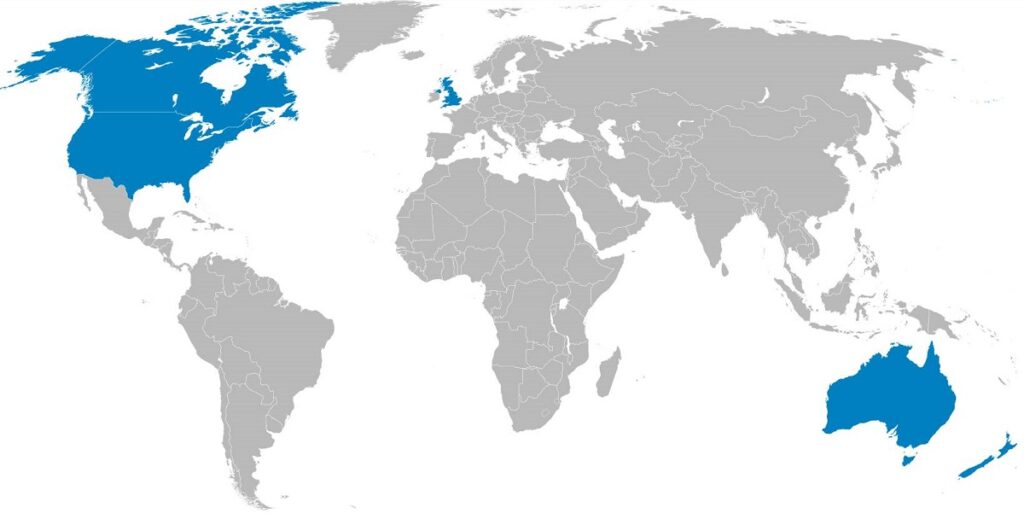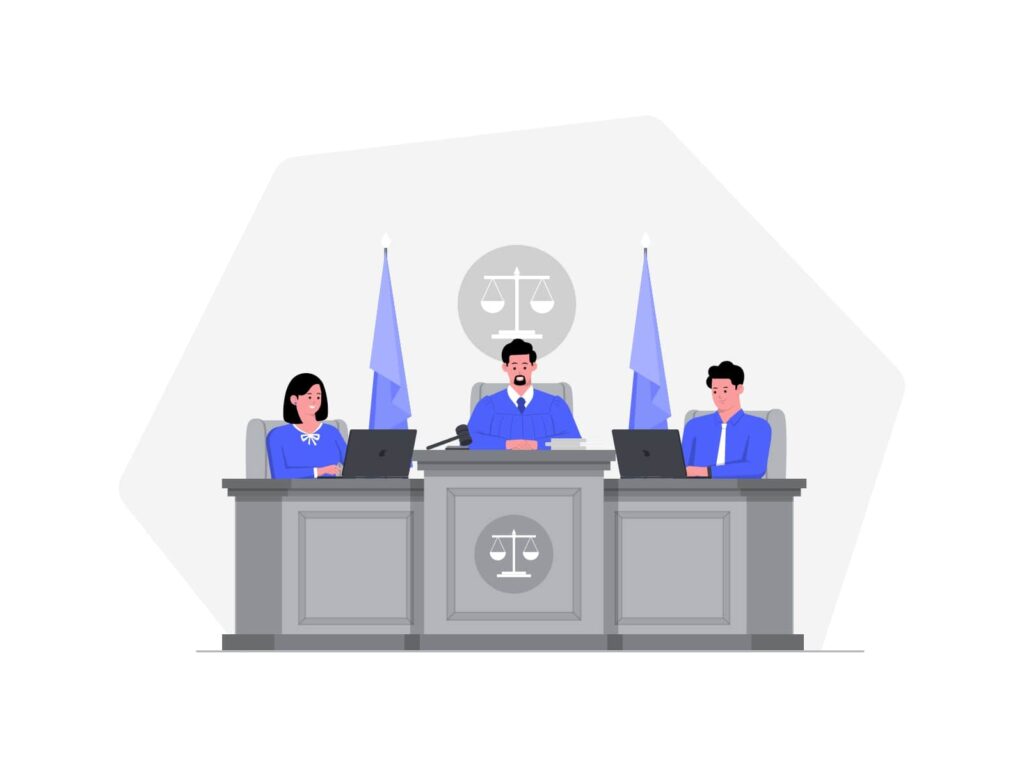Today, we will dive into something a little more technical but incredibly crucial: VPN jurisdiction. Yep, you heard it right – VPN jurisdiction. You might think, “Hey, I've got a VPN, so I'm anonymous online, right?”
There's a lot more to the story, and it's more interesting and important than you might think. VPN jurisdiction is one of those nitty-gritty details that can make a world of difference in how secure and private your online experience really is.
So, stick around as we unpack this whole VPN jurisdiction puzzle.
Quick Summary
- The jurisdiction of a VPN provider plays a crucial role in determining the level of privacy and security it can offer.
- Surveillance alliances, such as the Five Eyes, can potentially engage in intelligence sharing and surveillance activities.
- Opting for VPN providers in jurisdictions outside surveillance alliances can enhance your privacy and security.
- Look for VPN providers that have strict no-logs policies. These policies ensure that the VPN service does not keep records of user activities, providing an additional layer of privacy.
- When selecting a VPN, it's essential to consider multiple factors beyond jurisdiction alone.
What is VPN Jurisdiction?
In the simplest terms, VPN jurisdiction refers to the legal jurisdiction under which the VPN provider operates, typically where it's registered or headquartered. It's like the legal home base of the VPN.
Since registration as a business entity is mandatory, there's no escaping this conundrum. But here's where things get interesting. Not all jurisdictions are made equal. Some countries have stringent privacy laws that protect your data, while others do not.
And here's another twist: even if your VPN provider promises a “no-logs” policy, their jurisdiction might compel them to keep logs anyway. So, it's not just about what the VPN provider is saying; it's also about what the laws in their jurisdiction are saying.
Tricky stuff, isn't it? But don't worry, we're going to untangle this web together.
The Legal Aspects of VPN Jurisdiction
As we navigate our modern world's digital highways and byways, we must understand the legal terrain we're traversing. For VPNs, the landscape is shaped by jurisdiction. It's more than just a fancy word; it's the cornerstone of how our data is treated.
How Jurisdiction Affects Your Privacy and Data Protection
Jurisdiction doesn't just influence how a VPN provider operates—it directly affects your privacy and data protection. The country where your VPN provider is registered determines the laws that govern your data privacy.
This is a big deal, especially when using a VPN to keep your online activities private and secure.
Online activities are more likely to remain private if your VPN provider is based in a country with strong data protection laws. These laws protect you from unwarranted surveillance, data collection, and other privacy infringements.
But your data may be at risk if your VPN provider is based in a country with weak or non-existent privacy laws.
Influence of Local Laws on VPN Providers
A country's local laws and regulations directly impact the VPN provider's operations, shaping how they handle your data. VPN providers are businesses, and like all businesses, they must adhere to the laws of the country they're registered in.
Some countries have robust privacy laws that strictly regulate what a VPN provider can and can't do with user data. For instance, they may prohibit providers from keeping logs of user activities or sharing data without explicit consent.
On the other hand, there are countries with lax or ambiguous privacy laws or where governments can legally compel VPN providers to keep logs and hand over data on demand. So, the legal landscape where the VPN provider is based is crucial, as it can dictate how your data is handled, stored, and potentially shared.
International Law and its Effect on VPNs
Now, to add another layer of complexity, let's talk about international law. We live in a connected world, and data often crosses international borders. This means international laws and treaties can also impact VPN jurisdiction.
For instance, international intelligence-sharing agreements—like the Five Eyes, Nine Eyes, and Fourteen Eyes alliances—involve several countries agreeing to share intelligence and surveillance data.
If a VPN provider is based in such a country, your data might be at risk of being shared with foreign governments.
Moreover, some international legal principles could compel a VPN provider to comply with foreign court orders or cooperate with international law enforcement agencies. These principles, such as mutual legal assistance treaties (MLATs), can affect a VPN provider's obligations.
Five Eyes, Nine Eyes, and Fourteen Eyes Alliances
In international surveillance, few things are as influential as the Five Eyes, Nine Eyes, and Fourteen Eyes Alliances. Let's deep-dive into these alliances, explore their implications, and understand how they impact VPN jurisdictions.
Five Eyes Alliance

The Five Eyes Alliance (FVEY) is an intelligence coalition that traces its roots back to the aftermath of World War II. With members like Australia, Canada, New Zealand, the United Kingdom, and the United States, this alliance has significantly shaped global surveillance norms.
The agencies from these countries collaborate to collect and analyze data from their citizens' activities, often extending their surveillance to non-member countries.
Despite domestic laws against spying in many of these countries, the agencies have tried to circumvent these restrictions, often by subcontracting the surveillance to other countries within the alliance.
Notably, Edward Snowden's 2013 revelations exposed the extensive surveillance programs conducted by the United States with the assistance of Internet Service Providers (ISPs) and telecom companies.
Following these revelations, countries like the UK and Australia have implemented laws requiring ISPs to log user data, which government agencies and their partners can access without a warrant.
Nine Eyes Alliance: An Expansion of Five Eyes
The Nine Eyes Alliance is essentially an extension of the Five Eyes Alliance. It includes all Five Eyes members, Denmark, France, the Netherlands, and Norway.
While these additional countries don't share the same level of cooperation as the original Five Eyes members, they benefit from access to a larger data pool and shared resources.
Fourteen Eyes Alliance: A Further Extension
The Fourteen Eyes Alliance represents a further expansion, adding Germany, Belgium, Italy, Sweden, and Spain to the surveillance collective.
Though less intimately connected with the Five Eyes members than the Nine Eyes members, these countries still gain access to resources and intelligence that might otherwise be unavailable to them.
Risks of Using a VPN Based in a Surveillance Alliance Country
When choosing a VPN, it's not only the features that matter. The jurisdiction of the VPN provider is equally important. Let's delve into the potential risks you face when using a VPN based in a surveillance alliance country.
The Illusion of Privacy
A VPN's primary role is to offer enhanced security and increased privacy. However, if your VPN provider is based in a country part of a surveillance alliance, the privacy you believe you're enjoying could be a mere illusion.
The Five Eyes, Nine Eyes, and Fourteen Eyes Alliances are international intelligence coalitions collaborating to collect, share, and analyze citizens' data. Unfortunately, this data collection can extend to the data processed by VPNs based in member countries.
Legal Obligations and Data Sharing
A VPN provider based in a surveillance alliance country could be legally obligated to hand over user data to government agencies. For VPN users, this is alarming. After all, the main reason to use a VPN is to maintain privacy and anonymity online.
If your VPN provider logs your data and potentially shares it with government agencies, the purpose of using a VPN for privacy becomes moot.
International Spying and Your Data
These alliances often circumvent domestic spying restrictions by sharing intelligence. This means that even if you're not a citizen of a surveillance alliance country, your data might still be accessible to its intelligence agencies if you use a VPN based in that country.
How to Check and Understanding VPN Provider Jurisdiction
Recommended VPNs Under The Jurisdiction of Privacy-friendly Countries
If privacy is a priority, it's recommended not to use a VPN domiciled in one of the Five, Nine, or Fourteen Eyes countries nor to connect to servers in these countries when using a VPN provider from a non-member country.
For users who need to use a VPN provider from one of these countries, it's advisable to choose one that does not keep logs. However, even this cannot guarantee complete protection against potential surveillance.
We highly recommend the following VPN providers;
NordVPN: Based in Panama
NordVPN is based in Panama, which is outside the jurisdiction of the Five Eyes surveillance alliance. Panama does not have mandatory data retention laws, which means NordVPN is not required to store user data or share it with any surveillance alliance countries.
ExpressVPN: Based in The British Virgin Islands
ExpressVPN is headquartered in the British Virgin Islands. As a result, ExpressVPN operates outside the jurisdiction of the surveillance alliance countries and is not subject to mandatory data retention laws.
CyberGhost: Based in Romania
CyberGhost is a VPN service provider that emphasizes user privacy and security. It is headquartered in Romania, a country outside the jurisdiction of the surveillance alliance. Romania also has data protection laws that prioritize user privacy.
VPN Jurisdiction Matters for Your Privacy
VPN jurisdiction is particularly relevant in digital privacy due to international intelligence alliances such as the Five Eyes, Nine Eyes, and Fourteen Eyes. These alliances facilitate extensive data sharing between member countries, potentially undermining the anonymity and privacy VPNs are meant to provide.
The location of the VPN company and its servers can affect the privacy users enjoy, as these entities might be legally obligated to share data with their governments on demand. It's also worth noting that the information could be passed on to other countries within the alliances.
Choosing a VPN that maintains a strict no-logs policy is also crucial, thereby minimizing the amount of data that could be handed over to authorities.
